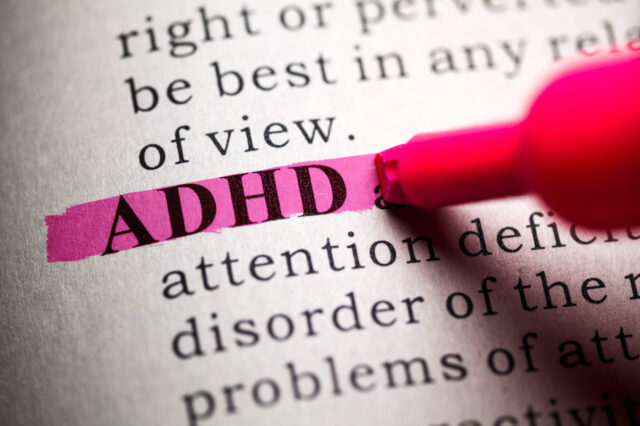Do you have ADHD? Unleashing college potential masked by ADHD
I remember when I first arrived at the University of Florida for my freshman year, I was worried that the workload would be overwhelming as compared to high…

Update your location to show providers, locations, and services closest to you.
ADHD is a problem that most often affects children. Adults may be affected as well. People with ADHD may have problems with:
Medicines can help improve symptoms of ADHD. Specific kinds of talk therapy can also help. Work closely with your health care providers to ensure that the treatment plan is successful.
TYPES OF MEDICINES
Stimulants are the most commonly used type of ADHD medicine. Other types of medicines are sometimes used instead. Some medicines are taken more than one time a day, while others are taken only once a day. Your provider will decide which medicine is best.
Know the name and dose of each medicine you take.
FINDING THE RIGHT MEDICINE AND DOSAGE
It is important to work with your provider to make sure the right medicine is given at the right dose.
Always take your medicine the way it was prescribed. Talk to your provider if a medicine is not controlling symptoms, or if you are having side effects. The dose may need to be changed, or a new medicine may need to be tried.
MEDICINE TIPS
Some medicines for ADHD wear off over the day. Taking them before going to school or work may allow them to work when you need them the most. Your provider will advise you on this.
Other tips are:
SAFETY TIPS FOR MEDICINE
Learn about the side effects of each medicine. Ask your provider what to do in case of side effects. Call your provider if you or your child notices side effects such as:
Do not use supplements or herbal remedies without checking with your provider. Do not use street drugs. Any of these may cause your ADHD medicines not to work as well or have unexpected side effects.
Check with your provider about whether any other medicines should not be taken at the same time as ADHD medicines.
MEDICINE TIPS FOR PARENTS
Regularly reinforce with your child the provider's treatment plan.
Children with ADHD often forget to take their medicines. Have your child set up a system, such as using a pill organizer. This can remind your child to take medicine.
Keep a close watch on possible side effects. Ask your child to tell you about any side effects. But be aware that your child may not understand when they are having side effects. Call the provider right away if your child does have side effects.
Be aware of possible drug abuse. Stimulant-type ADHD medicines can be dangerous, especially in high doses. To ensure your child uses medicines safely:
Prince JB, Wilens TE, Spencer TJ, Biederman J. Pharmacotherapy of attention-deficit/hyperactivity disorder across the life span. In: Stern TA, Fava M, Wilens TE, Rosenbaum JF, eds. Massachusetts General Hospital Comprehensive Clinical Psychiatry. 2nd ed. Philadelphia, PA: Elsevier; 2016:chap 49.
Urion DK. Attention-deficit/hyperactivity disorder. In: Kliegman RM, St. Geme JW, Blum NJ, Shah SS, Tasker RC, Wilson KM, eds. Nelson Textbook of Pediatrics. 21st ed. Philadelphia, PA: Elsevier; 2020:chap 49.
Wolraich ML, Hagan JF Jr, Allan C, et al. Clinical Practice Guideline for the diagnosis, evaluation, and treatment of Attention-Deficit/Hyperactivity Disorder in children and adolescents. Pediatrics. 2019;144(4):e20192528. PMID: 31570648 pubmed.ncbi.nlm.nih.gov/31570648/.
I remember when I first arrived at the University of Florida for my freshman year, I was worried that the workload would be overwhelming as compared to high…

August 7, 2017
A University of Florida study is among the first to evaluate whether a child’s age at the time of an attention deficit hyperactivity disorder diagnosis…
Department of Pharmaceutical Outcomes and Policy, +3 more
